Regardless of how old or new your vehicle is, nothing beats having a car alarm. But what if the supposed car alarm you have for now suddenly doesn’t work the way it should?
Car alarms are your vehicle’s first line of defense against anyone who has bad intentions on your vehicle. This has also been proven to save tons of people’s vehicles from getting robbed or hijacked over the years.
On the downside, however, there have also been cases where a vehicle’s car alarm would go off when it shouldn’t.
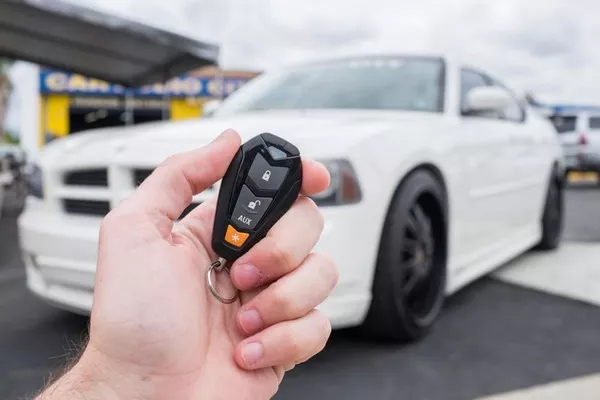
Car alarms are your vehicle’s first line of defense against anyone who has bad intentions on your vehicle
While this may be fine for just one occasion, repetitive events of your car alarm going off can lead to causing alarm in the surrounding area.
This can also be embarrassing for you overall. So how do you solve this type of problem, and what could be causing it? Get the answers you need right in this article from Philkotse.com:
What could be causing your car alarm to go off?
Aside from someone trying to rob your car, there are tons of other ways for your car alarm to go off. To determine the reason in your case, you first have to take into consideration the type of alarm your car has.
Why is that so? This is because there can be big differences within an old car’s alarm and that of a new one’s. First of all, alarms in older car alarms are usually installed once the vehicles are out of the factory. Most new car alarms, however, are integrated into the vehicles.
If you have a newer vehicle, the best way of finding the car alarm’s issue is by making use of trouble codes.
>>> For your information:
- Car alarm in the Philippines: Installation guide, How it works, How to stop it & What to buy
- Protect your car with car security systems - What's your answer?
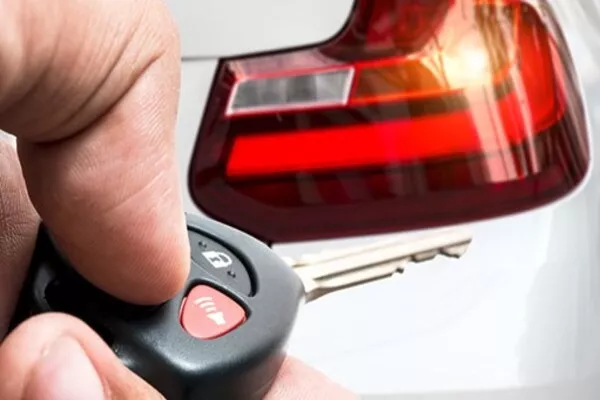
Most new car alarms are integrated into the vehicles
You will need an OBD2 Scanner for this. This device should be able to pull the trouble codes from your car alarm unit. There are also cheaper or lower quality OBD2 scanners in the market. These, however, may not be fully functional in pulling codes from the alarm unit.
These are usually only capable of pulling codes from the engine control unit. You can either get a better OBD2 device or have your car checked at the nearest workshop with a better device.
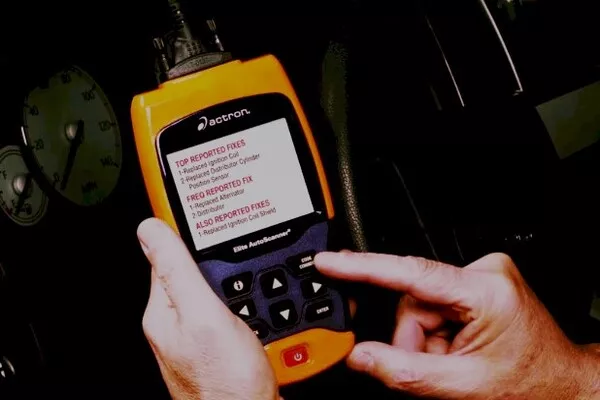
You will need an OBD2 Scanner to pull the trouble codes from your car alarm unit
>>> Recommended for you:
- 10 recommended software for OBD II scanner
- How to choose OBD-2 Scanner in the Philippines & 10 recommended products
Causes of car alarm going off
1. Defective key fob
The key fob (or also known as the car remote key) is a device that can lock and unlock the car doors. With a key fob, you won’t have to use an actual key. The key fob can also be used to start your car engine by pushing the button. Standard key fobs come with controls that are linked to the car’s alarm system.
This is why there’s a probability that a defective key fob could be sending wrong signals to your car. This may be responsible for triggering your car’s alarm.
You can try and troubleshoot the problem by replacing the batteries first. Then, check if the device works better. You can also try to reset the fob key to relieve your car of the problem.
If there are still problems after you tried both suggestions, you may need to have your fob key reprogrammed.
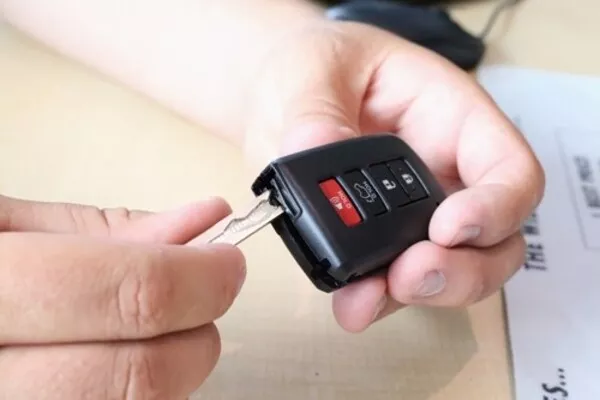
There’s a probability that a defective key fob could be sending wrong signals to your car
>>> Read more: [Philkotse tips] How to access your car with a dead fob key
2. Low battery charge
Besides alerting the owner about possible thieves messing with your car, car alarms also warn you when the battery level is too low.
If your car battery is bound to die sooner or later, but you still switch the engine on, the alarm will go off. This is to indicate that the battery level is already low.
To have more accurate results, check the car battery using a multimeter. If the reading gives you a result lower than 12.6 volts, this means you need to replace your car battery.
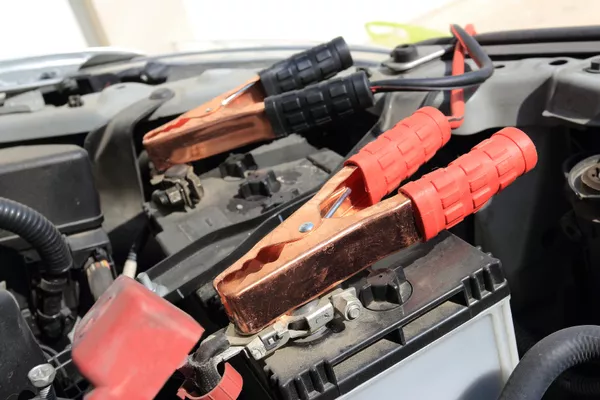
Car alarms also warn you when the battery level is too low
>>> You might concern: Handy tips on how to charge and maintain car battery properly
3.Sensitive shock sensor
A sensitive shock sensor has the tendency to trigger the car alarm even if pets were to touch your vehicle slightly. If the alarm beeps from time to time, the battery will likely drain sooner than you expect. The shock sensor is easy to gain access to. All you have to do is to twist it to adjust the configuration. If you don’t know what to do, check what it says on your owner’s manual.
4. Dirty hood latch sensor
Most of the modern vehicles these days are manufactured with hood latch sensors. These trigger the alarm if it so happens that someone is trying to open the car’s hood forcibly. Depending on the condition of your vehicle, it’s highly likely that grime, debris, and dust can collect easily.
These elements usually accumulate where you can find the hood latch sensor. Over time, this can be a cause for the car alarm to go off in situations where no one is trying to rob your vehicle.
To troubleshoot this particular problem, you need to locate the sensor. Then, clean it. If you cleaned the latch sensor but can still hear the alarm, there can also be another problem with the latch sensor. It is also possible that the sensor has been tampered with.
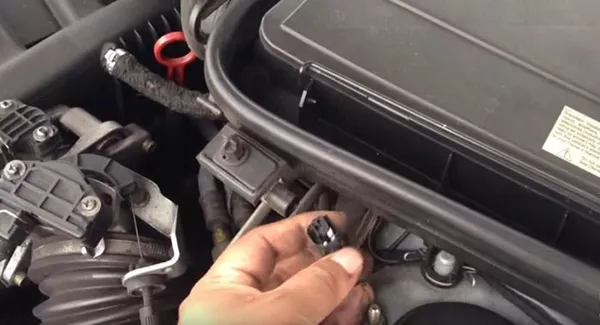
Most of the modern vehicles these days are manufactured with hood latch sensors
>>> Worth reading: 9 common car sensors and the facts that you might not know
In rare cases, the sensor may also be installed incorrectly. The hood latch sensor can be found located close to the vehicle’s headlights.
To clean the latch sensor, you will need a few materials. This includes a cleaning brush, a microfiber towel, and a brake cleaner. Start the cleaning process after you locate the sensor.
Make sure that you’ve also removed the battery’s negative terminal. After that, unplug it and check for signs of dirt or damage. Then, spray the sensor with a brake cleaner.
Make sure that you remove all the dust and other unnecessary elements on it. Then, use the brush to remove any residue. Lastly, use your microfiber towel to wipe the sensor.
Recent posts
- [Philkotse pick] Top best car alarms of 2019 you should consider Aug 16, 2022
- [Philkotse guide] Understanding how your car alarm works Nov 25, 2019
- Top 3 Tips on Getting the Best Deals on Car Accessories in Banawe Street Aug 18, 2023
- 6 steps to disable your car's anti-theft alarming system Aug 04, 2020
- Top 6 must-have car accessories Dec 22, 2020











